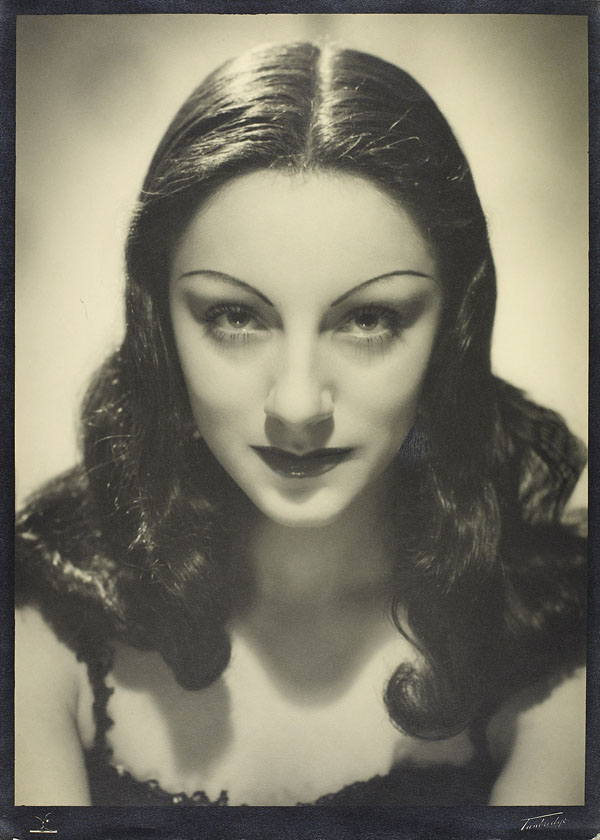Nelly Arcan, née Isabelle Fortier (born 5 March 1973 in Lac-Mégantic, QC; died 24 September 2009 in Montréal, QC) was a Québec novelist who specialized in autobiographical fiction. She aroused great curiosity by publicly admitting to having worked as an escort, thereby sometimes detracting attention from her literary efforts both in interviews and in criticism. Her works — especially her first novel, Putain (tr. Whore) — were freely inspired by her experiences as a sex worker. She took her own life at the age of 36.
Early Years and Publications
Isabelle Fortier spent her childhood in the town of Lac-Mégantic, in the Eastern Townships. She was the younger of two siblings in a traditional, rather religious family. Her childhood was fairly peaceful; she was described as a creative, brilliant, sensitive child. In 1994, she left home to study literature at the Université du Québec à Montréal. In the big city, she experienced what she called a “debauchery of values” and was exposed to lifestyles for which she was ill prepared. To pay for her studies, she worked as an escort, which gave her bitter first-hand knowledge of the sickness of today’s society and the fate that often awaits women in this industry. Arcan was a rather gifted student: after completing her bachelor’s degree, she immediately began working on her master’s. At the same time, she wrote her first novel, Putain (2001; tr. Whore, 2004). She completed the manuscript in just a few months, and it was quickly accepted by the prestigious French publishing house Éditions du Seuil. It was at this time that she took the pen name Nelly Arcan, to establish some distance between herself and her story. Interest in Putain grew explosively in France; the book was nominated for the prestigious Médicis and Femina literary awards in 2002.
Arcan’s next novel, Folle, was published in 2004, again by Éditions du Seuil (an English translation, Hysteric, came out in 2014).This work, too, was nominated for a Médicis award, although by now the public’s enthusiasm had waned a bit. In 2007, Arcan published L’enfant dans le miroir, a story with illustrations by Pascale Bourguignon, describing the trials of adolescence and the start of the thrall of beauty. A longer version of this story, which has often been described as a “cruel fairy tale for young girls,” appeared in the posthumous collection Burqa de chair (2011; tr. Burqa of Skin, 2014).
Also in 2007, Arcan published À ciel ouvert (tr. Breakneck, 2015), a more traditional, less autobiographical narrative. Lastly, in 2009, Paradis clef en main (tr. Exit, 2011), which dealt with suicide, was published about two months after her own suicide. Although all of Nelly Arcan’s books were fairly well received by the critics, Putain remains her central work.
Talent, Image and Shame
During her adolescence, Isabelle Fortier went through a rather difficult period in which she experienced a variety of mental-health problems. She developed a troubled relationship with her body, which she never got over, subjecting herself to plastic surgery more than once. Her appearance was attention-getting, and on several occasions, she felt humiliated or misunderstood when she was interviewed on television, notably in France on the program Tout le monde en parle, by controversial host Thierry Ardisson. In September 2007, when Arcan was interviewed on the Québec television program of the same name by host Guy A. Lepage, she was deeply upset by the questions, which placed little emphasis on her work. Shortly afterward, she wrote a piece entitled “La honte” (“Shame”), which was published first on her website and later in the collection Burqa de chair in 2011.
The heroines of Nelly Arcan’s works, though they live in a world that oppresses and rejects them, would kill to please. Despite her immense talent, her own past as an escort and her stance as a critical witness of the prostitution milieu made her easy prey for the media. Like her heroines, she struggled with her own image. But her admirers read her and supported her for these very same reasons. People still read and study her works. In 2014, the municipal media library of Lac-Mégantic, her home town, was named after her.
Tragic Death
Arcan had already made several suicide attempts when she succeeded by hanging herself in her apartment in Montreal’s Plateau district in 2009. Suicide was an ongoing presence both in her personal life and in her work: she addressed the topic in both Putain and Folle, and in Paradis clef en main, it was the central concern. Before Arcan died, she sent e-mails to some of her friends, but did not release any message to the public. To them she left the chance to discover her work, which is largely autobiographical. Nelly (2016), the third film by Québec director Anne Émond, was freely inspired by the life of Nelly Arcan.

 Share on Facebook
Share on Facebook Share on X
Share on X Share by Email
Share by Email Share on Google Classroom
Share on Google Classroom


